Baghdad cranks up pressure on Kurds with flight ban
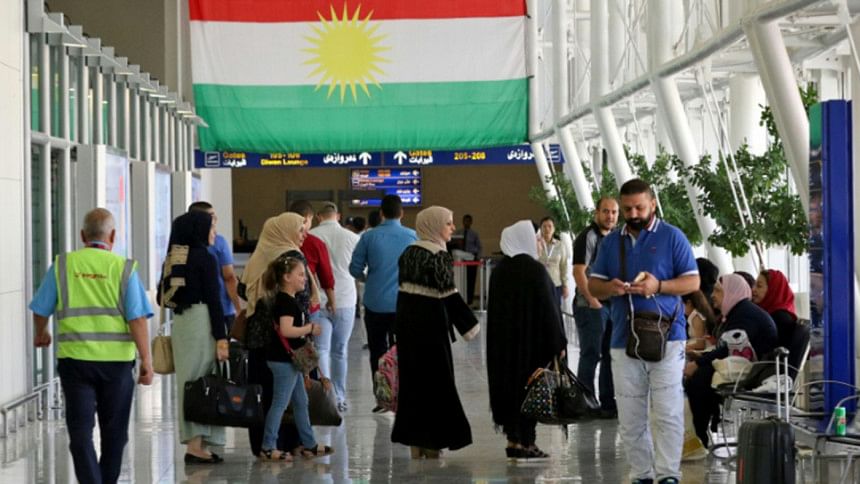
Iraq has suspended all international flights to and from the Iraqi Kurdish capital Arbil from today, sending anxious foreigners rushing to the airport, as Baghdad cranked up the pressure on the Kurds over their independence referendum.
The cut in foreign air links, Baghdad's first retaliatory measure for Monday's 92-percent "yes" vote, drew condemnation from the Kurds' regional government as "collective punishment".
Arbil airport director Talar Faiq Salih said all international flights to and from the city would stop from 6:00 pm (1500 GMT) on Friday following a decision by the Iraqi cabinet.
Thursday's decision saw people, many of them foreigners, turn out in droves at Arbil airport to avoid getting stuck in the autonomous Kurdish region of northern Iraq.
"I was supposed to travel next week but I changed my flight to today because, as everyone expects, all the flights next week will be cancelled," said Ahmad, a logistics coordinator for an international NGO.
An extended suspension of flights would have significant consequences for the Kurds, who have turned Arbil into a regional transport hub that is home to a large international community.
The non-binding referendum in the three provinces of Iraqi Kurdistan and some disputed areas was held in defiance of Baghdad, which declared it illegal, and despite international objections.
Turkey, also home to a large Kurdish minority, is especially concerned and has threatened a series of measures to isolate the Iraqi Kurds.
Prime Minister Binali Yildirim of Turkey said on Thursday that he wants to hold a summit with Iraqi and Iranian leaders to coordinate how to respond to the disputed referendum.
Turkish Airlines was among the regional carriers including EgyptAir and Lebanon's Middle East Airlines that had already announced they would suspend flights serving Iraqi Kurdistan at Baghdad's request.
Turkey fears the vote will inflame separatist feelings among its own Kurdish population and President Recep Tayyip Erdogan had earlier threatened to block oil exports from Iraqi Kurdistan.
A civil aviation official in Baghdad told AFP the measure applied to the airports in Arbil and the region's second-largest city Sulaimaniyah. Baghdad has demanded the airports be handed over to central authorities.
'Going to affect everyone'
The Iraqi Kurdish government rejected Baghdad's measures as illegal.
"The Kurdish Regional Government rejects all the decisions taken by the Iraqi government and parliament and regards them as collective punishment against the Kurds," it said.
Salih said she deeply regretted the decision, which she said would hamper the campaign against the Islamic State group in Iraq and neighbouring Syria, as well as the delivery of aid to those displaced by it.
"We have consulates, international staff, international companies, so it's going to affect everyone," Salih said. "We have a big international community here, so this is not only against Kurdish people."
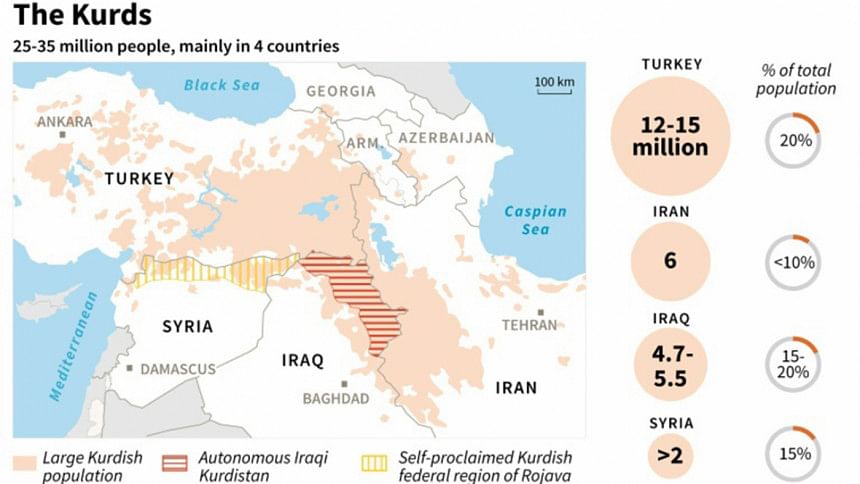
Kurdish forces have been key allies in US-backed offensives against IS in both Syria and Iraq, and Washington had urged Arbil to postpone the referendum in the interests of that battle.
Longtime Iraqi Kurd chief Massud Barzani went ahead anyway, and more than 3.3 million people -- 72.6 percent of the electorate -- flocked to polling stations to pursue a decades-old dream of statehood.
Barzani said the vote would not lead to an immediate declaration of independence, instead opening the door to negotiations, but Iraqi Prime Minister Haider al-Abadi has rejected any talks on the basis on the referendum.
On Wednesday, Abadi demanded the results of the vote be "annulled" and talks take place "in the framework of the constitution".
Lawmakers on Wednesday passed a resolution calling on Abadi to "take all necessary measures to maintain Iraq's unity" including by deploying security forces to disputed areas. A similar demand had been made on Monday but there have been no signs of any deployment.
Wednesday's resolution also called for the closure of border posts with Turkey and Iran that are outside central government control.
Analysts have said it is unlikely Baghdad will take military action in response to the vote, especially as the top priority for its forces remains the battle against IS.
It could coordinate efforts with Turkey however to tighten the screws on the Kurds by cutting off trade routes, including for vital oil exports.
Kurds slam 'collective punishment'
Abadi's office said in a statement on Thursday that Ankara had told Baghdad it would deal only with the Iraqi government on oil exports.
The Iraqi Kurds export an average 600,000 barrels per day through a pipeline running through Turkey to Ceyhan on the Mediterranean coast.
Turkey has also warned it could close its land border with Iraqi Kurdistan and even suggested the possibility of a cross-border incursion similar to one against IS and Kurdish fighters in Syria.
A senior Iraqi government official said there were no ongoing talks with the Kurds.
"There will be no negotiations with Kurdish leaders, neither officially nor in secret, as long as they do not declare that the results of the referendum are void and do not hand over to authorities in Baghdad the border posts, airports and disputed regions where they deployed their forces," the official told AFP.

 For all latest news, follow The Daily Star's Google News channel.
For all latest news, follow The Daily Star's Google News channel. 

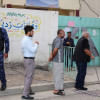


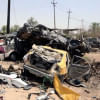
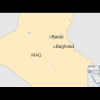


Comments